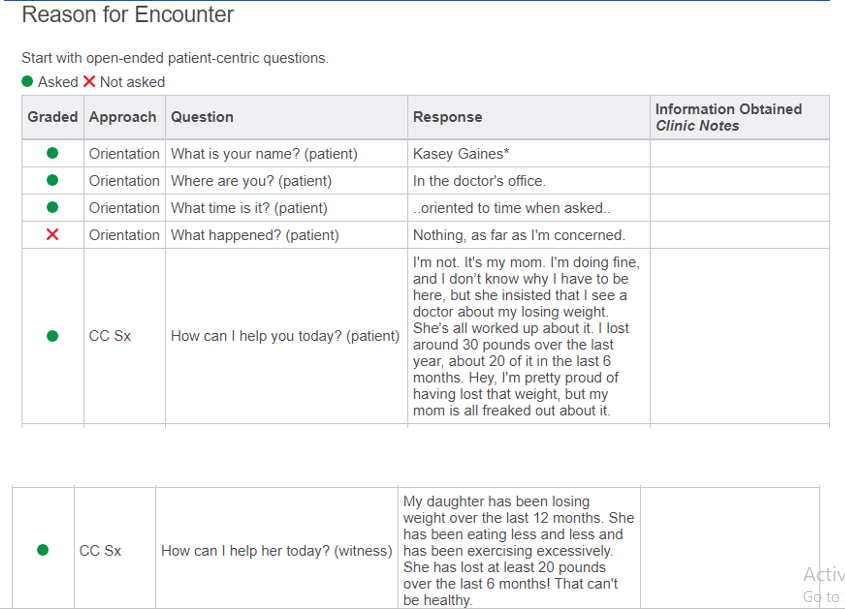Understanding The Value Of Middle Management: Benefits For Companies And Their Workforce

Table of Contents
Enhanced Communication and Collaboration
Effective middle management is the crucial link in a company's communication chain. They ensure seamless information flow between upper management and frontline employees, fostering a collaborative and productive work environment.
Improved Information Flow
Middle managers act as conduits for information, translating high-level strategies into actionable plans for their teams and relaying feedback from the workforce to senior leadership. This two-way communication stream is vital for organizational success.
- Regular meetings: Scheduled meetings facilitate the dissemination of information and provide opportunities for questions and feedback.
- Transparent reporting: Open and honest reporting keeps everyone informed about progress, challenges, and changes.
- Open-door policies: Creating an environment where employees feel comfortable approaching their managers with concerns fosters trust and improves communication.
These effective communication strategies directly impact productivity and employee morale, leading to a more engaged and efficient workforce. Improved information flow minimizes misunderstandings and ensures everyone is working towards common goals.
Fostering Teamwork and Collaboration
Middle managers play a pivotal role in building strong teams and fostering a collaborative spirit. They are responsible for creating a positive and supportive work environment where teamwork flourishes.
- Team-building activities: Engaging team members in collaborative activities boosts morale and strengthens relationships.
- Conflict resolution strategies: Effective middle managers possess strong conflict resolution skills, mediating disputes and ensuring a harmonious work environment.
- Promoting a positive work environment: This involves creating a culture of respect, appreciation, and mutual support, where team members feel valued and empowered.
Strong teamwork and effective collaboration are directly linked to higher productivity, improved quality of work, and increased employee satisfaction. Middle managers are key to cultivating this crucial element of organizational success.
Increased Employee Engagement and Motivation
Highly engaged and motivated employees are the cornerstone of any successful business. Middle managers play a crucial role in fostering this crucial element.
Mentorship and Development
Middle managers act as mentors, providing guidance, support, and opportunities for growth to their team members. This mentorship leads to increased employee engagement and motivation.
- Skill development: Mentoring helps employees develop new skills and enhance their existing capabilities.
- Career progression: Middle managers can identify high-potential employees and guide their career paths, creating opportunities for advancement within the organization.
- Improved job satisfaction: Knowing that their manager is invested in their growth leads to increased job satisfaction and a greater sense of belonging.
Investing in mentorship programs and empowering middle managers to act as mentors yields significant returns in terms of improved employee engagement, retention, and overall productivity.
Recognition and Reward Systems
Middle managers are instrumental in implementing effective recognition and reward programs that boost employee morale and productivity. They are on the front lines, witnessing individual and team achievements.
- Employee recognition programs: Public acknowledgement of achievements, both large and small, strengthens motivation.
- Reward programs: Incentivizing employees through bonuses, promotions, or other rewards reinforces positive behavior and encourages high performance.
- Performance management: Regular feedback and performance reviews provide opportunities for recognition and improvement.
A well-structured recognition and reward system, managed effectively by middle management, contributes significantly to a motivated and high-performing workforce.
Improved Operational Efficiency and Productivity
Middle managers are essential for translating high-level strategies into actionable plans and ensuring efficient day-to-day operations.
Strategic Implementation
Middle managers are responsible for taking the company's overall strategy and breaking it down into manageable tasks for their teams. This involves effective planning and execution.
- Efficient task delegation: Assigning tasks to the right individuals based on their skills and experience optimizes workflow.
- Project management techniques: Employing effective project management methodologies ensures projects are completed on time and within budget.
- Performance monitoring: Regularly tracking progress and identifying potential roadblocks allows for proactive adjustments and prevents delays.
Effective strategic implementation, driven by strong middle management, directly translates to improved operational efficiency and increased productivity across the organization.
Problem Solving and Decision Making
Middle managers are often the first point of contact for operational issues. Their ability to identify, analyze, and solve problems quickly is crucial for maintaining efficiency.
- Quick problem identification: Middle managers are closely involved in daily operations and can quickly spot potential issues.
- Efficient problem-solving: They possess the skills and experience to analyze problems, develop solutions, and implement them effectively.
- Timely decision-making: Middle managers often need to make decisions quickly to address immediate challenges, minimizing disruption and maximizing efficiency.
Empowering middle managers to make timely decisions within their areas of responsibility improves responsiveness and minimizes the impact of operational disruptions.
Succession Planning and Talent Development
Middle management plays a critical role in identifying and developing future leaders within the organization.
Identifying and Nurturing Future Leaders
Middle managers are well-positioned to identify high-potential employees who demonstrate leadership qualities.
- Talent identification: They can identify individuals with the skills, knowledge, and ambition to move into leadership roles.
- Training programs: They can participate in the development and implementation of training programs to enhance the skills of future leaders.
- Mentorship opportunities: They can act as mentors to high-potential employees, guiding their development and providing valuable insights.
A robust succession plan, facilitated by middle management, ensures organizational continuity and minimizes disruption during leadership transitions.
Knowledge Transfer and Organizational Continuity
Middle managers are vital for preserving organizational knowledge and expertise.
- Knowledge sharing: They encourage the sharing of knowledge and best practices among team members.
- Mentoring: Through mentorship, they pass on their expertise and experience to newer employees.
- Documentation: They ensure that critical information is documented and readily accessible to others.
Effective knowledge management, facilitated by middle management, safeguards the organization’s intellectual capital and ensures its continued success.
Conclusion
Investing in strong middle management is not just beneficial; it’s crucial for achieving sustainable organizational success. Effective middle management enhances communication, boosts employee engagement, improves operational efficiency, and fosters crucial succession planning. Evaluate your current approach to middle management today and unlock the full potential of your workforce. By investing in training, development, and empowerment of your middle management team, you'll see a positive impact on every level of your organization, leading to increased profitability and a thriving work environment.

Featured Posts
-
 Affordable Elizabeth Arden Skincare At Walmart
May 10, 2025
Affordable Elizabeth Arden Skincare At Walmart
May 10, 2025 -
 Harry Styles Reacts To A Hilarious And Awful Snl Impression
May 10, 2025
Harry Styles Reacts To A Hilarious And Awful Snl Impression
May 10, 2025 -
 The Weight Watchers Bankruptcy A Case Study In The Weight Loss Industry
May 10, 2025
The Weight Watchers Bankruptcy A Case Study In The Weight Loss Industry
May 10, 2025 -
 Stephen King On Stranger Things The It Connection
May 10, 2025
Stephen King On Stranger Things The It Connection
May 10, 2025 -
 Vehicle Break Ins Prompt Law Enforcement Search In Elizabeth City
May 10, 2025
Vehicle Break Ins Prompt Law Enforcement Search In Elizabeth City
May 10, 2025
